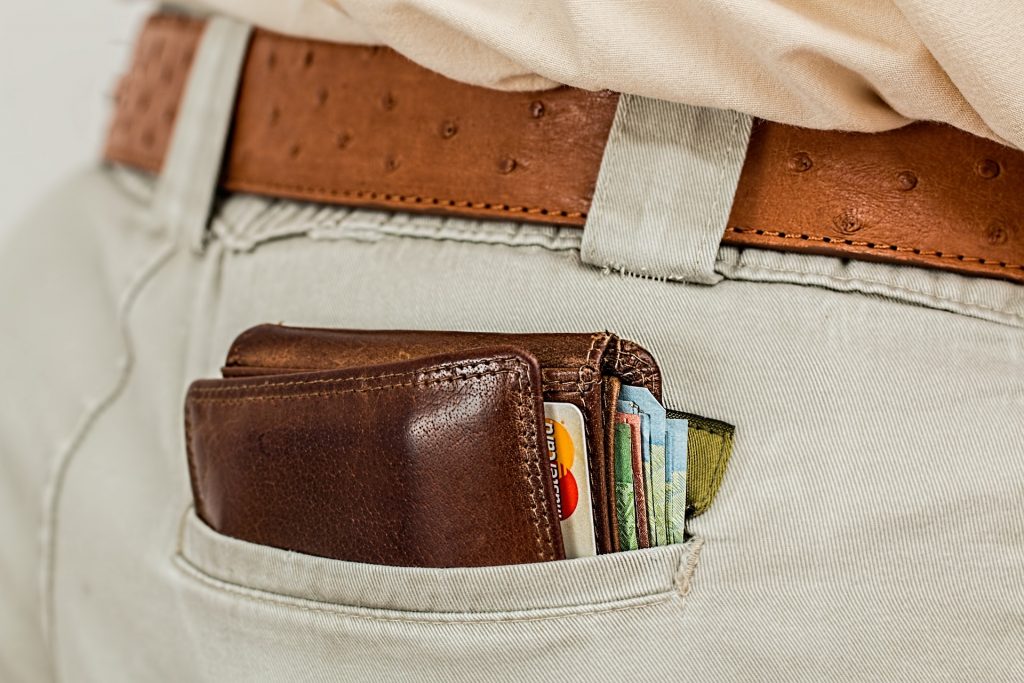
“I thought spending more money would fix things. It didn’t”
When you have money problems, the damage it can do to your mental health is so swift and so significant that it can be really hard to come back from. I’ve been there many times over.
You think you’re doing well, and then you slip back in. It’s constant.
It starts with some sort of mental barrier. Sometimes that might just be feeling a bit down, and buying stuff to make yourself feel better... I think everybody does it some point, to some extent.
Part of my anxiety disorder is social anxiety. It would cause me to become very reclusive and spend a lot of time on my own. I’d be sitting there twiddling my thumbs. So what do you do when you're feeling that way? You go on the internet and you buy stuff. Everything’s at your fingertips these days: you can start a Netflix subscription, you can get a credit card, you can get a loan and don’t you even have to leave the house.
“Before I knew it I was at the height of my anxiety, home alone, and I’d just spent £2000 on a computer, paid for on credit cards. ”
My money problems really started when I was at uni. Every three months you get given a chunk of money and you’re expected to deal with it responsibly. I’d never lived away from home before. You’re expected to know how to budget, but people aren’t taught this stuff in schools. I didn’t have a parent who was in a good position to teach me about finance.
I had a student overdraft, but still wouldn’t have enough money for debits coming out of my account. I was being charged recurring bank fees which would just multiply. It was a domino effect, it would get worse and worse.
When I had a part time job and a bit more money I got a credit card. I thought it would be a good thing, I could start building up good credit, and that would be really good for the future. But the people who were telling me that didn’t really know enough about credit – I didn’t have all the warnings.
My credit card debt just spiralled. I left the job I was in and didn’t have a job for a while which meant spending more on my credit card. That spiralled to an increase on my credit card limit, and then I got a second credit card and then another extension to my overdraft, which I then maxed out. Before I knew it I was at the height of my anxiety, home alone, and I’d just spent £2000 on a computer, paid for on credit cards and my overdraft.
“We spend money because we feel like we need things. Or because we feel like we want something so much it will give us something it’s never actually going to give us. ”
I thought spending was a fix. I’ve never really been able to explain it, but it just felt like it a fix. When you speak to people about this issue that’s a common theme – it’s all based on emotions, it’s a feeling, it’s never based on logic.
We spend the money because we feel like we need these things, because we feel like we want it so much that it will give us something it’s never actually going to give us. At the end of the day it’s usually a possession and I’ve realised now that a possession gives you nothing.
It all spiralled, as my anxieties got worse, so did my hold on my financial situation and my spending and that added to my anxiety which added to my spending problems. It becomes a cycle.
It was only when I’d left uni and got a job and was in a position to pay those debts off that I started looking around online to work out how to do it. Until then I’d pushed it aside and hoped it would go away. But once I started looking I realised how big my debt was, and I was scared to do anything about it.
I think the problem for a lot of people is that the information available is confusing. The information you need is somewhere in a 20 page document of terms and conditions, that's impossible to understand. I ended up using Money Saving Expert as my main resource, it’s the first thing I found that had all this information available for free, and from the perspective of the consumer, rather than the lender.
From there I began to work out the link between my spending and my mental health. It’s still a challenge and it’s still something I’m learning about for myself.
I think the most important thing is understanding how you communicate with your spending, what your emotional triggers is. What causes the spiral to start. The problem isn’t so much that you’re in debt but that you’ve developed a certain perception of money, and that what needs to change.
Joe Bloom told us his story in an interview. We got in contact with him through the Money and Mental Health Policy Institute, a research charity which is working to break the link between financial difficulty and mental health problems. You can find out more information about them here.



